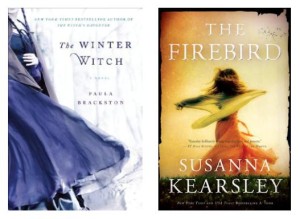 If you’re interested in the Celtic or Gaelic festival of Samhain, please observe it correctly. October is not actually Samhain’s month. The festival begins on the night of the 31st of October but the month of Samhain is November. Its beginning corresponds with secular Halloween and that’s why we think of it as an October thing today. In modern society, Halloween is spreading into all of October because, in my opinion regarding America, November is all about Thanksgiving.
If you’re interested in the Celtic or Gaelic festival of Samhain, please observe it correctly. October is not actually Samhain’s month. The festival begins on the night of the 31st of October but the month of Samhain is November. Its beginning corresponds with secular Halloween and that’s why we think of it as an October thing today. In modern society, Halloween is spreading into all of October because, in my opinion regarding America, November is all about Thanksgiving.
Here’s the basic truth.
Firstly, Samhain is not pronounced sam-hane. Don’t do that. It’s disrespectful to keep mispronouncing words after you’ve been properly taught. Irish-speaking people tend to say sow-an (my source is Trinity College Dublin) and some dialects of Gaelic-speaking people have said it’s like sahv-in, sow-een, shahvin, sowin (with “ow” like in “glow”). The Scots Gaelic spelling is Samhuin or Samhuinn. Since my people were mostly Irish, I stick with the example Trinity College Dublin offered.
Samhain is something that often got misidentified before as a “Celtic Death God”, which is not true. There was no such god and the story was, in fact, invented in the 18th century and propagated largely by Protestants nervous about pagans. Samhain is simply the initiation of the winter, the end of the harvest period, and a time to honor the dead in the pre-Christian Irish calendar. Traditions reflect the beliefs of Irish and some Scottish people in “in between” times when seasonal changes coincide with the unseen world and the death of the earth. The last day of October into the first day of November is an in between time, between life and death.
The pre-Christian Irish and some Scottish calendars were basically divided into two parts – the light half of the year beginning at Beltane (May) and the dark half of the year beginning at Samhain (November). There were other festivals coinciding with agricultural phases, of course, but the year began at Samhain and turned to the other half at Beltane. Winter and summer. Samhain is the end of the harvest period and the beginning of winter when people stayed closer to home and hearth.
In Modern Irish the name is Samhain, in Scottish Gaelic Samhainn/Samhuinn, and in Manx Gaelic Sauin. These are also the names of November in each language, shortened from Mí na Samhna (Irish), Mì na Samhna (Scottish Gaelic) and Mee Houney (Manx). The night of 31 October (Halloween) is Oíche Shamhna (Irish), Oidhche Shamhna (Scottish Gaelic) and Oie Houney (Manx), all meaning “Samhain night”. 1 November, or the whole festival, may be called Lá Samhna (Irish), Là Samhna (Scottish Gaelic) and Laa Houney (Manx), all meaning “Samhain day”.
These names all come from the Old Irish samain, samuin or samfuin [?sa??n?] all referring to 1 November (latha na samna: ‘samhain day’), and the festival and royal assembly held on that date in medieval Ireland (oenaig na samna: ‘samhain assembly’). Its meaning is glossed as ‘summer’s end’, and the frequent spelling with f suggests analysis by popular etymology as sam (‘summer’) and fuin (‘end’). The Old Irish sam is from Proto-Indo-European (PIE) *semo-; cognates include Welsh haf, Breton hañv, English summer and Old Norse sumar, all meaning ‘summer’, and the Sanskrit sáma (‘season’).
(Source.)
Samhain is a time to focus on and honor the dead, mirroring how the earth is going dormant like death for the cold season. Unlike Halloween, which is light-hearted and viewed as make believe, honoring the dead at Samhain is a deeply spiritual time, often solemn, and many rituals are done in private. This is how I was taught. And I remember fireplaces going in my childhood homes around the Samhain festival. Fire was an important element.
My grandmother always made sure I understood the difference between Halloween – them – and the importance of remembering the dead, both people and the planet – us. There was definitely an us vs them mentality to many of the holidays we observed in my childhood. I remember being seven and I’d have to listen to stories about relatives I never met while putting on a ballerina tutu to go trick-or-treating with my friends. At the time, I had trouble understanding why dusty photos of long-dead relatives appeared on my grandmother’s dresser amid candles every autumn and winter. Now I recognize it for what it was – an altar. We came from Irish people who held onto the old ways and (and later mixed them with Christian ways, mostly for show). It all got passed to me too, a little seven-year-old girl putting on a tutu on Halloween and wondering why my grandmother was drilling separation of cultures into my head.
In Octobers and Novembers of my childhood growing up under my grandmother’s care, there was a lot of feasting. It went on from Samhain through Thanksgiving. My school friends liked to come to my house because of the feasting – my grandmother fed everybody she met. I asked her why once because parents weren’t doing that at my friends’ houses and she said it was the way to appreciate harvests on the farm. While she often complained about how hard the work was on the farm (we were agricultural people for hundreds of years up until my mother’s generation), she did maintain cycles of feasts and lean times even while living in an apartment as an older woman.
November is the time of Samhain. The festival begins at sundown on October 31 and (at least in my family tradition) goes on for several days. In Irish culture, Samhain is the full month. In my family, we eat, we set up our ancestral altars, we practice divination, and we prepare our homes for the cold half of the year. This Samhain, my grandmother will be added to my altar. She died in July.
I am a witch who enjoys secular Halloween, Thanksgiving, Christmas, etc., but my real spiritual practices lie in what’s underneath. My spiritual new year begins on November 1, not the literal new year of January 1. In fact, New Years Eve is the one secular holiday I don’t observe. I don’t go out and party. I rarely stay up until midnight to see the ball drop. My new year comes earlier and I’m much more comfortable with my traditions to mark the occasion. Of course, the evidence to say Samhain is the Celtic or Gaelic “New Year’s Day” is actually not very strong but it became a popular theory later when Celtic traditions underwent a revival in the 19th and 20th centuries. It was remarked that Samhain traditions have a running theme of new beginnings, so it became synonymous with the idea of the new year. Is it true in the pre-Christian period? I’m not sure, however, I follow my family traditions. We picked up a sorta kinda idea of Samhain the new year at some point – probably during the revival period of my great-great grandmother’s time.
Celtic and Gaelic people are still very much living, breathing cultures. I’m not going to write off newer family traditions because they were picked up by my Celtic and Gaelic family members after the pre-Christian period. Hereditary cultures largely based in oral tradition evolve over time. They’re not static. We need to give as much study and attention to all periods of our ancestral cultures, including the state of those cultures today, and learn as much as we possibly can. Being Americans descended from Celtic and Gaelic people means we’re often viewed as not “really” of those cultures. We have to work harder on the bigger picture, not just the pre-Christian period.
So while Halloween, in essence, came from Samhain, what’s celebrated today is what I think of as an American folk holiday. Samhain traditions are much more internalized to me because the time marks the beginning of winter when the life on earth is going dormant and we prepare for leaner times as we ask for support, love, and blessings from our ancestor spirits.
There are a lot of stories out there about the pagan origins of trick-or-treating, of carving gourds, of giving and receiving sweets, of wearing costumes, etc., so I don’t need to rehash all of that now. I tried to talk about the things here that get overlooked in favor of the more entertaining things. Feel free to add your traditions to this post! Are you a German witch? Polish? Russian? A completely different culture? How are your dead honored?
Read More

















